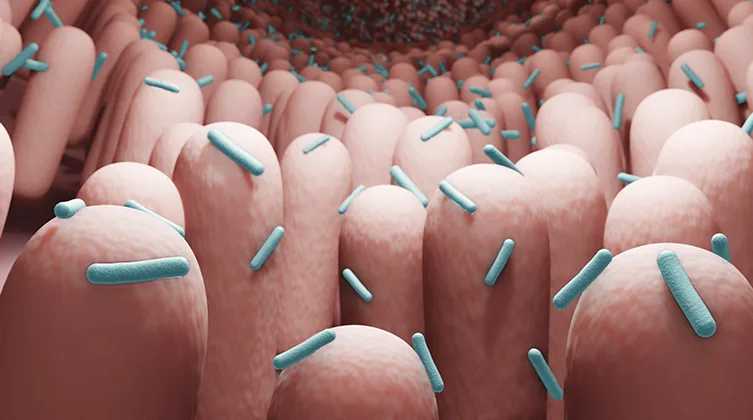Take a seat and prepare yourself for the truth: we are not alone! Our bodies are literally teeming with bacteria, the majority of which reside in our large intestine. These tiny residents, called the gut microbiota, outnumber our own cells by an estimated 10:1 (that is, your body contains 1 cell for every 10 gut bacteria!) and comprise about 2kg of our body weight.
There is no need for concern. In fact, a better understanding and nurturing of this ‘mutualistic’ relationship can be beneficial for our health. Mutualism means that both organisms (humans and bacteria) benefit from the relationship. Some of the benefits these bacteria confer to us include:
- Helping to absorb nutrients from food.
- Regulating our blood glucose and cholesterol levels.
- Optimising functionality of our immune system.
- Synthesising vitamins, such as vitamin K and vitamin B12.
- Preventing colonisation by harmful or disease-causing microorganisms.
- Providing energy for our intestinal cells to keep them healthy.
- Maintenance of a healthy body weight.
Scientific studies have shown that the diversity and composition of our gut bacteria is important. A wide variety of factors influence our gut microbiome – all the genes and microorganisms that reside inside our gut – including our age, genetics, hormones, dietary habits, medications, antibiotics, environmental pollutants and vaccination. Diet is particularly important, as the food we eat also provides a substrate for the bacteria in our gut. Studies have shown both long-term and immediate changes in the composition and diversity of our gut microbiome with different dietary patterns and rapid, extreme dietary changes.
Diet is particularly important, as the food we eat also provides a substrate for the bacteria in our gut.
There are many factors with the ability to alter our gut microbiome and influence our health. Scientists are only beginning to scratch the surface! An imbalance or ‘dysbiosis’ of the gut microbiota has been associated with a number of diseases, including diabetes, metabolic syndrome, autoimmunity, neural degeneration, irritable bowel disease (Crohn’s disease and ulcerative colitis), irritable bowel syndrome, cardiovascular disease and even psychiatric conditions such as depression.
The role of the gut microbiome is now highly appreciated and deserves extensive investigation. Understanding the complex mechanisms governing the gut microbiota-host interplay has tremendous potential to improve disease outcomes and the general health of individuals. I look forward to sharing with you more specific articles on this topic. A topic I fell in love with many years ago and almost embarked upon a permanent scientific research career to explore before chosing to pursue nutrition.





